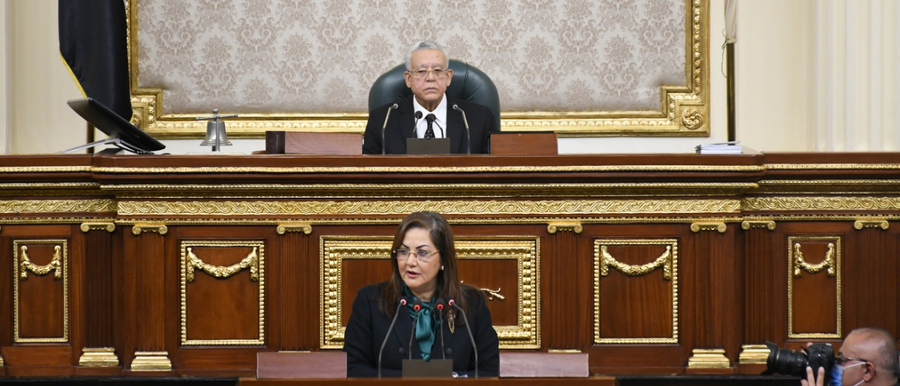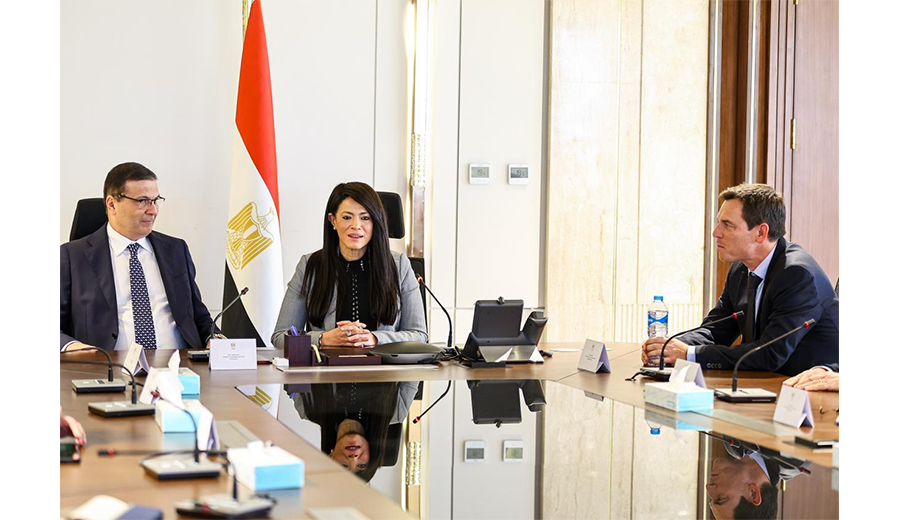Planning Minister reviews updates in implementing Egypt’sVision 2030 before Egypt’s Parliament

08 February 2021
The Ministry is currently working on preparing the third voluntary report for Egypt, which monitors the performance achieved in implementing the sustainable development goals, to be issued in the current year 2021: Says Hala El-SaidHala El-Said, Minister of Planning and Economic Development reviewed the ministry's efforts in following up the level of achievement executed in implementing Egypt’s Vision 2030 and promoting the participatory approach. This was during the presentation of the ministry’s performance statement on Monday before the plenary session of the Parliament headed by Counselor Hanafi Jabali.El-Said pointed out that Egypt Vision 2030 is the national version of the UN Sustainable Development Goals and Africa's Agenda 2063, and it provides a strategic vision and performance indicators that are measured periodically. El-Said pointed out that the Ministry has taken several steps in this regard, including preparing a variety of reports to monitor the achieved performance in this field, among them the Voluntary National Review (VNR) report that was presented at the plenary session of the High-Level International Forum on Sustainable Development in July 2016 and 2018.She emphasized that the ministry is currently working on preparing the third voluntary report for Egypt to be issued in the current year 2021.About the follow-up to the achievement of the goals of the many indicators set by the vision in its economic, social, and environmental dimensions, El-Said pointed out that Egypt ranked 83 at the global level in the recent United Nations sustainable development report issued by the University of Cambridge, compared to the 92nd position in 2019. El-Said also indicated that Egypt has achieved more than the goals of Egypt Vision 2030 in many indicators, including infrastructure, availability of services to citizens, drinking water services, sanitation, electricity, quality of infrastructure, and competitiveness of travel and tourism.El-Said stressed that despite the achievement of many positive indicators about the sustainable development goals, there are many challenges in several indicators, including achieving more gender equality and women's participation in the market.El-Said added that among those challenges is creating a business environment to be more attractive to local and foreign investment, and intensifying work on indicators related to education, especially illiteracy rates, as well as health indicators.El-Said also confirmed that the ministry is working on updating the strategy in line with developments, including the implementation of the economic reform program in 2016.“The Ministry is working on updating the strategy to deal with some issues such as the issue of population increase and the development of the Egyptian family, scarcity of water, financial inclusion, the repercussions of the Covid 19 pandemic, which imposed a reordering of priorities,” El-Said explained.The Minister indicated that the participatory approach was followed in formulating, implementing, and following up all development plans and programs, in addition to paying attention to encouraging positive participation by the citizen. Therefore, the Ministry issued a citizen’s plan or “Citizen's Guide to a Sustainable Development Plan” for all Egyptian governorates for two consecutive years, to achieve transparency and encourage community participation.El-Said pointed out that the ministry launched the application "Share 2030" as the first mobile application that aims to raise awareness of the goals of sustainable development and the government's efforts to implement these goals through specific performance indicators and projects.“Share 2030” provides an opportunity for citizens to submit proposals for development initiatives and projects in all governorates as well as monitoring achievement rates in the context of adopting the concept of “citizen follow-up”, as part of the state’s drive towards access to information and transparencyEl-Said emphasized that all these measures and reforms, especially those related to the availability of data and raising the efficiency of public spending, resulted in Egypt leading 47 ranks in the Budget Transparency Index, from the 110th position in 2018 to the 63rd position in 2019.









